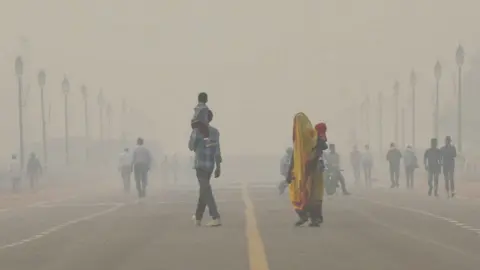Toxic smog has engulfed Lahore and 17 other districts in Pakistan’s Punjab province since October, causing severe air pollution that UNICEF warns poses a grave risk to over 11 million children. UNICEF’s Pakistan representative, Abdullah Fadil, stressed the “devastating effects” this pollution will have on children and pregnant women urging the government to take immediate action to reduce pollution levels.
Alarming Health Impacts:
The smog crisis has already affected more than 40,000 people with respiratory illnesses, according to local health officials. Pollution levels have reached a hazardous new high and experts say air pollution has now essentially become a “fifth season” in the region. The impact on children under five is especially concerning as air pollution already accounted for 12% of deaths in this age group even before these record-breaking pollution levels.
Government Measures:
In response, Pakistan has closed schools across Punjab until November 17 to protect children from the severe air quality. Authorities also ordered the closure of all parks and museums for 10 days and have advised the public to avoid unnecessary travel. Multan, one of the most affected cities reported an air quality index (AQI) of 800 on Monday, a level far exceeding the threshold of 300 which is deemed hazardous.
Despite the government’s mandate to wear face masks, public compliance has been low. Officials are also exploring methods to induce artificial rainfall to help alleviate pollution levels.


